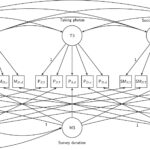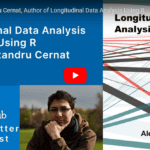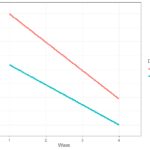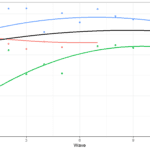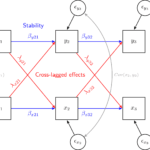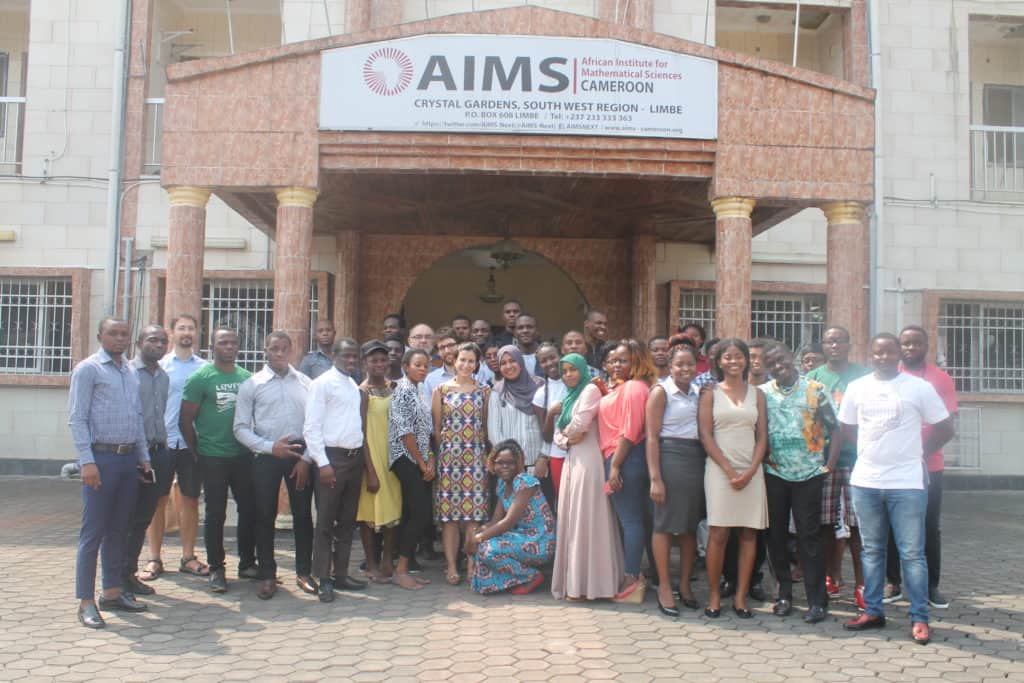
I recently had the opportunity to teach statistics in Africa for the first time with the support of the Royal Statistical Society. This is part of an outreach program that supports the travel of fellows to teach at the African Institute of Mathematical Sciences (AIMS).
AIMS is an exciting project started in South Africa in 2003. It has now spread to six different countries: South Africa, Senegal, Ghana, Cameroon, Tanzania and Rwanda with the aim of training the next generation of African experts in Science, Technology Engineering and Maths. By 2023 it aims to open more centers of excellence in all Africa.
If you want to know a little more you can watch this inspiring TED talk by Neil Turok:
An important part of AIMS is teaching mathematical related courses, which mainly takes the shape of a master’s degree. This has an interesting structure with initial courses aimed at insuring a level playing field with the students having a minimum level of English, mathematics and statistics. This is followed by blocks of three weeks which are typically taught by invited lecturers. These cover a wide range of topics around mathematics, physics, programing and statistics. To have an idea of this amazing range, while I visited there were four courses: numerical mathematics (in Python), differential geometry, quantum mechanics and data analysis (in R). Students had to choose two of these classes.
The schedule is quite intense as well. Every day there are two hours of lecture for each course with a two day break in between the weeks. Additionally, there are tutorials, two quizzes a week plus a weekly assignment. The last assignment typically involves group work and presentations as fostering team work and problem solving is one of the main aims of the program.
One of the exciting things about the project is the ease with which you can interact with the students. The students and the lecturers live in the same quarters, eat together in the canteen and have ample opportunities to communicate. So, after the lecture, during lunch or at the table tennis you have the opportunity to exchange ideas.
Some lesson learned
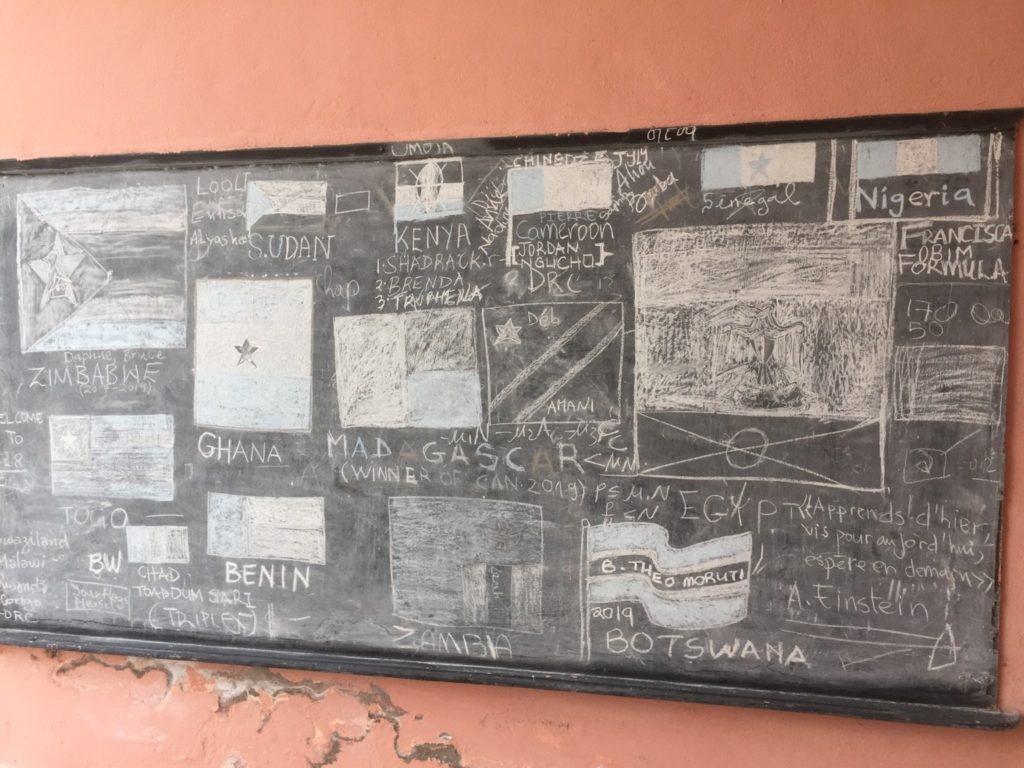
As expected, the environment and the students are quite different from those in the UK. The students come from all over Africa and have a wide range of backgrounds. The thing that really brings them together is their interest and ability in mathematics.
One of the things that you quickly learn in this environment is the need to adapt. Given the mix of the students, their diverse prior degrees and the wide range of topics covered in the other modules the course needs to be adapted constantly to fit the students’ needs and level. This is especially important given the technical issues that can appear. For example, in the first week the generator had some issues, which meant that there were frequent power outages (and thus no projector). Solutions to this issue had to be found fast in order to avoid losing precious time. Fortunately, students have laptops that they can use to follow the slides when the projector failed.
Similarly, while I love teaching statistics using the open source software R and RStudio sometimes these can be quite fiddly. This was now especially obvious with students having different types of laptops with old versions of R and Rstudio installed on Linux OS. Things that would normally take minutes (installing packages, downloading data, etc.) could end up completely blocking the lab.
The three weeks teaching in Cameroon also highlighted the importance of the practicals/lab work in learning statistics. Given the intense and diverse nature of the program, often the work in the computer lab was the only time when students really could problem solve on their own and try the things they learned. Indeed, I think the lab sessions were much more valuable than in normal circumstances.
An unexpected benefit of the visit was also the great pleasure of talking with colleagues from different fields. Sharing our experiences and practices in teaching really highlighted the similarities in our work. Also discussing our research with colleagues from other fields can really bring some great insights. For example, discussing measurement error in physics with Matteo was quite eye opening.
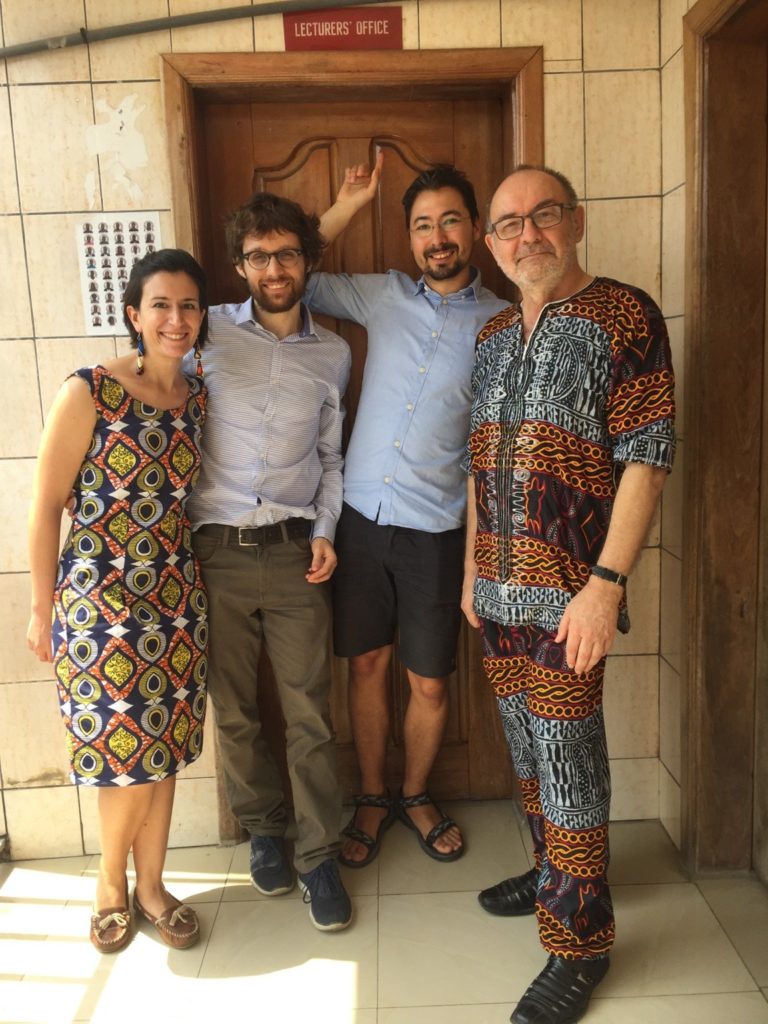
Some thoughts from Diletta Martinelli
I am an assistant professor at the University of Amsterdam. At AIMS I taught a review course in Differential geometry. My trip to was supported by the Commission for Developing Countries of the International Mathematical Union.
It was my third trip to Africa. In February 2018 I went to Cape Town where I co-supervised a student at the AIMS-South Africa center for his final thesis and in August 2018 I went to Nairobi where I co-organised a workshop in Algebraic Geometry for local students. What I think was special about our experience at AIMS is the great sense of community. The fact that everything happens in the same building leads to many opportunities of communication. In addition to lectures we could chat while we ate together, watched football matches, played table tennis (with no great achievements from my part) and relax together after a day of work. On Wednesday afternoon there are no classes as students do volunteering in local schools. After that there is “sport” time. We joined the sport session, which also included informal dance classes, and I even joined a French class that AIMS provides to the students coming from non-francophone countries. I found teaching at AIMS an incredibly enriching experience, especially because the students come from all over Africa bringing with them different cultural background.
Most students had some challenges in adapting to my course, especially those that did not take many pure maths courses before. But I think that, overall, they did not lose motivation and optimism. Some of them did very well and expressed their desire to keep working in geometry and try to pursue a PhD at a western university. I was impressed by the determination that they showed and I really wish they will be given the opportunity to express their full potential.
I decided to organize a meeting with the female students of the center, to share some experiences of being a woman doing mathematics. Even though the circumstances were sometimes very different it was easy to relate my experience with theirs and I, unfortunately, realized than certain stereotypes know no geographical boundaries. Given these difficulties, I was very happy to discover that AIMS has an active gender-club that is organizing several activities to promote a more inclusive environment in academia.
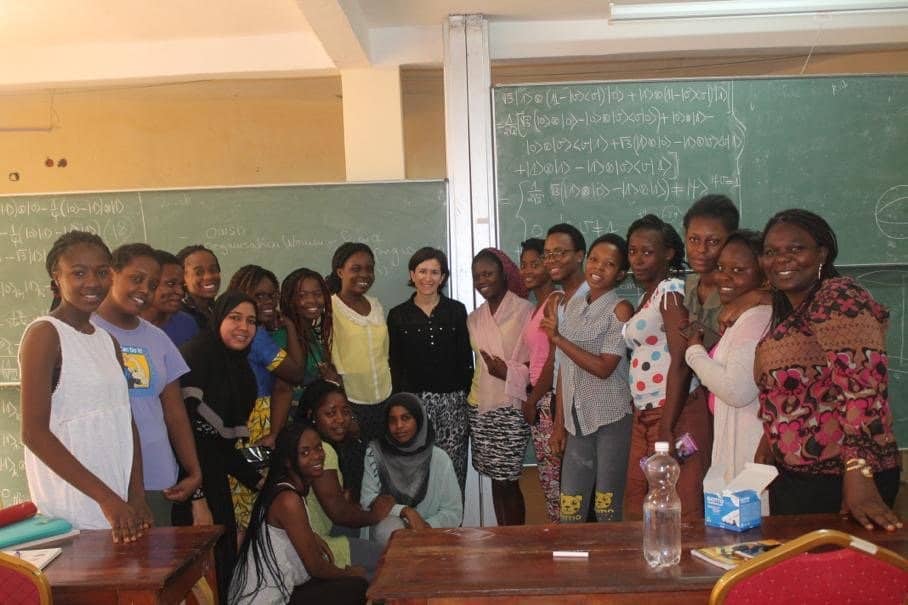
If I reflect on our trip, I think that are more things I learned than the ones I taught, but that is probably true of any successful teaching experience.
Some thoughts from Matteo Lostaglio
I am a researcher at ICFO Barcelona (soon QuTech in Delft) working in the field of quantum information science. At AIMS I taught an introductory course to quantum mechanics and gave an idea of its application to quantum computing. My travel expenses were covered through a Marie Curie Individual Fellowship.

While teaching at AIMS Cameroon I loved the enthusiasm of the students and was enriched by the many opportunities to talk with them during and after class, hear their stories at the canteen and do sport in the courtyard of the hospital. Many students experienced challenging learning environments and AIMS tries to make up for that with a stimulating, crazy-paced set of courses with plenty of opportunities to talk to lecturers one to one. I quickly felt I had a stake in their future and in fact I think we all have, as we will all rise or fall together depending on how we will tackle the many serious problems we face. Some days were more difficult than others, but every day was filled with purpose and great discussions about teaching, education and especially the future: of a student, of the institute, of the country, of the continent. There is just so much to learn and so much to do.
People at AIMS took great care of us to make us feel welcomed. The last day students sang a song to us on the tune of “Bella Ciao” (which I think may have more to do with La casa de Papel than Italian Resistance). Anyhow, the song said “Thank and see you next time”. Well, thank you for giving me the opportunity of such a meaningful experience. I do hope to see you next time. Perhaps then, you will teach me some quantum physics.
Final thoughts
This is an amazing opportunity to contribute to an important project. If you want to be involve on the side of the Royal Statistical Society contact Emanuele Giorgi. If you want to get involved specifically in Cameroon you can contact Marco Garuti.
